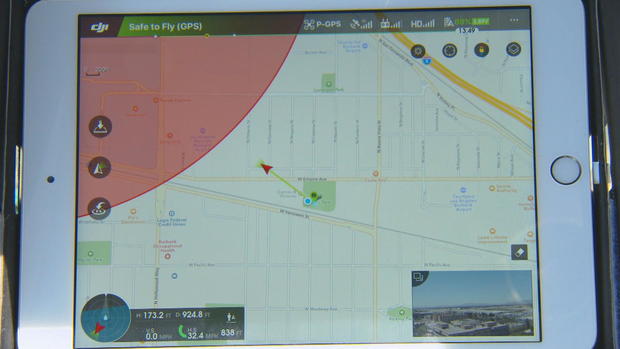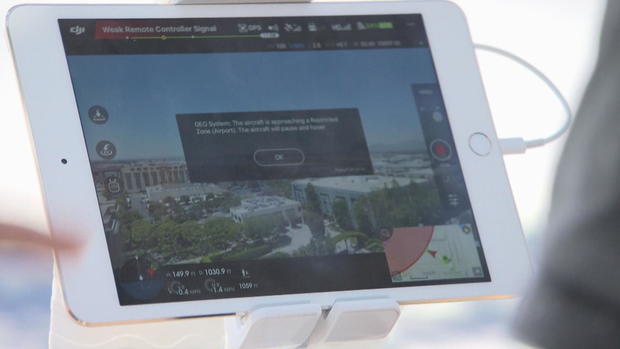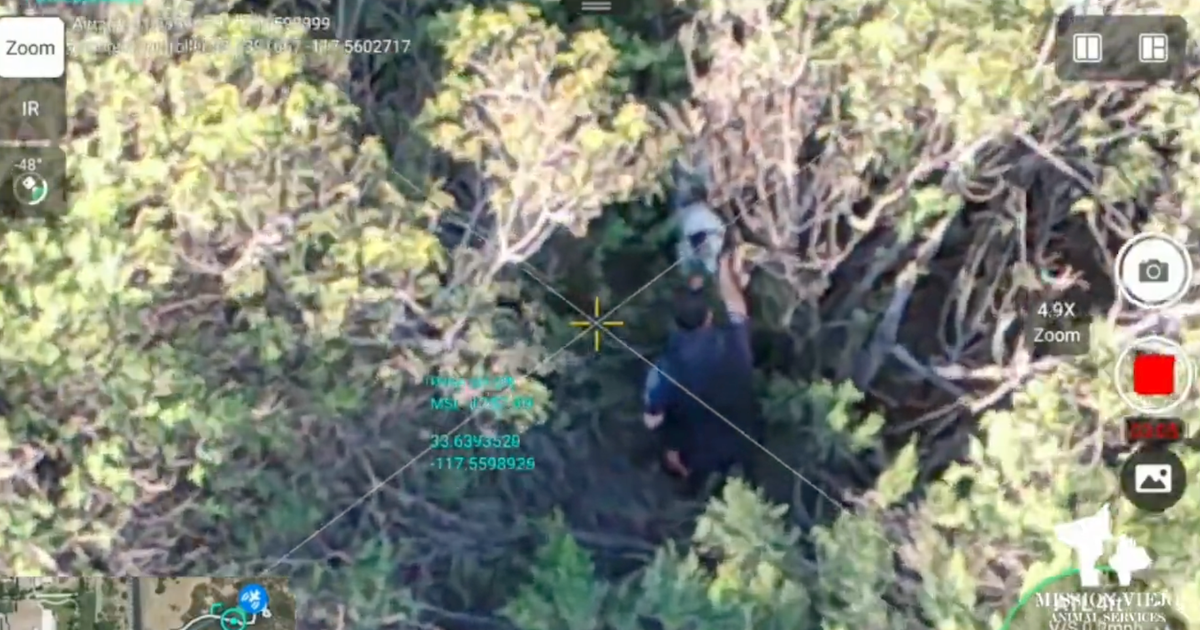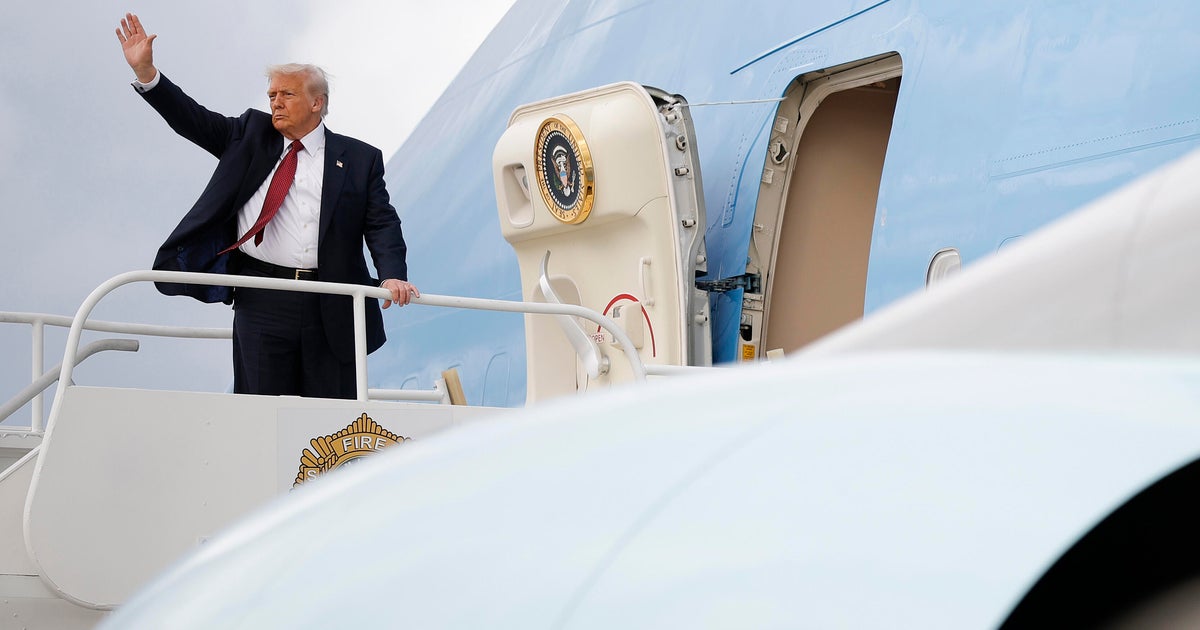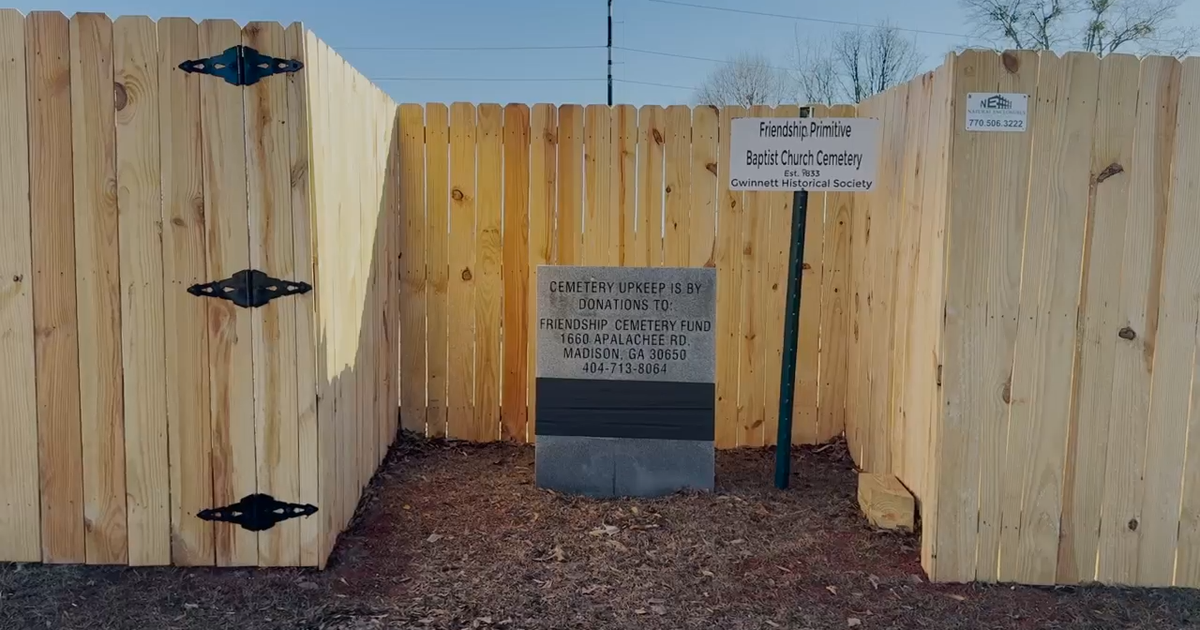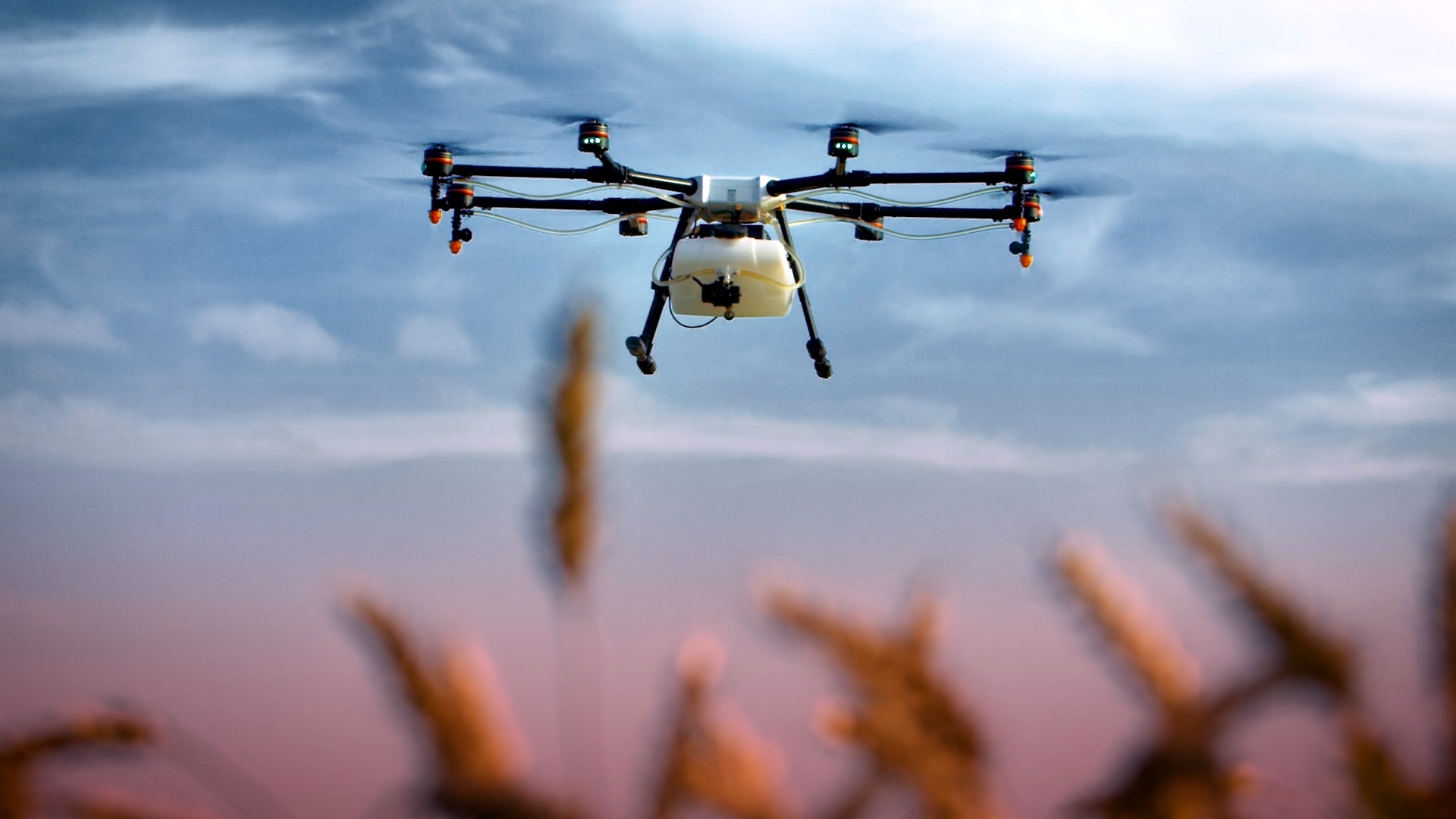How some drone companies are creating virtual fences for security
Drone sales are soaring this holiday season, but safety concerns are rising as well.
One consumer group says shoppers will buy more than one million drones leading up to the holidays. That is half of all drones sales expected this year.
Drones show the world from a new perspective, but even as they push the limits, some drone-makers say it’s time to limit their capabilities to help their customers, reports CBS News correspondent Carter Evans.
“We have certain restriction areas that’s built into the drone already, so you physically cannot go in there,” DJI marketing director Willis Chung said.
DJI sells more drones than any other single manufacturer. The company’s flight control app builds virtual fences around high-security locations where drones have caused problems before, like airports and nuclear facilities. The app monitors a drone’s location using GPS and prevents it from crossing the invisible barriers, indicated in red.
With permission from air traffic control, we tested the technology at Burbank Airport outside Los Angeles.
As our drone headed toward the busy runway, the app flashed several warnings – and then it hit the wall.
“Once you hit that wall, it’s not going to allow you to go up or out. It will only allow you to go back and down,” our drone operator explained.
The app updates in real-time so the company can quickly build temporary virtual fences around fast-moving wildfires or high-profile political and sporting events.
“What we see with new features like geofencing is that it creates a strong balance between a safe flying environment as well as an environment that continues to foster innovation,” Shawn DuBravac of the Consumer Technology Association said.
But DJI does allow customers to unlock restricted areas.
“If it’s a system that can be bypassed, then what good is it in the first place?” Evans asked.
“The GEO system isn’t an authorization mechanism… The GEO system is a tool for any pilot to just use to make smarter decisions on where to fly,” Chung said.
Most drone-makers don’t set flight restrictions all, so companies are using anti-drone technology to detect intruders and protect sensitive airspace.
One device jams a drone’s remote control signals, allowing federal authorities to take over, while another drone-mounted system shoots out a net to catch other drones mid-flight.
Law enforcement agencies in the Netherlands are going low tech, using specially trained eagles to take down drones.
Anyone who gets a drone this holiday season will need to register it with the FAA. If you’re thinking you might want to sell some of the pictures you take with your drone, you’ll need a commercial drone pilot’s license.
